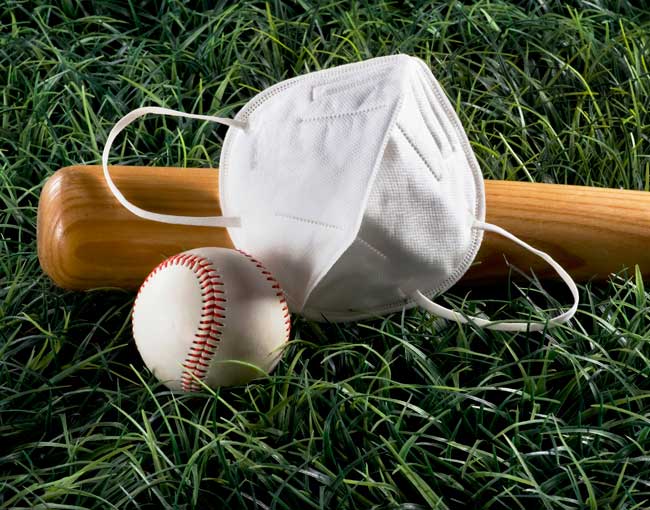Home > Insights > Publications > As sports teams consider reopening venues, what is their liability due to COVID-19?
As various states are reopening, the sports world is preparing to do so as well. And when the stadium gates begin to open, the exposure to liability due to a coronavirus infection being traced back to the facility becomes a very concerning issue. The concern is even greater when the Centers for Disease Control and Prevention (“CDC”) and local authorities have recommended against such large public gatherings found at sporting events.
Generally, fans assume the risk of injury for certain dangers that accompany attending a sporting event, such as getting hit by a foul ball at a baseball game or a puck at a hockey game. This concept is known as the “Baseball Rule.” The precedent establishing the Baseball Rule dates back to 1913 in Crane v. Kansas City Baseball & Exhibition Co., 153 S.W 1076 (Mo. Ct. App. 1913). In granting summary judgment in favor of the team, the court reasoned that (1) foul balls are inherent to the game of baseball, (2) getting hit by a foul ball is a risk well-known to spectators, and (3) the plaintiff voluntarily chose to sit in unprotected seats. Id. at 1077-78. Teams and stadium owners only needed to “exercise reasonable care, i.e., care commensurate to the circumstances of the situation… Id at 1077. However, this 100 year old decision continues to be attacked, and venues are taking many additional measures to provide additional protection for its patrons. Consequently, what satisfies reasonable care in 2020 may be significantly different than that level of care in 1913. As a result of these expanding expectations, the Baseball Rule, may not be applicable in the coronavirus context as a shield by venues or from liability where the danger is an airborne illness, which cannot be protected against by additional screens or netting, but is clearly recognized as dangerous.
While some may compare the risk of being infected with COVID-19 to the risk of catching a common cold or the flu at a sporting event, the stakes, it can be argued, may be significantly higher given there is no effective remedy at this time. However with the focus and ongoing media coverage of coronavirus, a spectator may have a hard time arguing they did not know the risk of contracting the virus when attending a large gathering sports event. In any event, certainly one factor courts will likely consider in assessing liability is whether a sports league failed to cancel an event, limit attendance in accordance with guidelines set by the CDC and other local governmental entities, or make concessions or accommodations to limit the risk of the virus, and what were the reasons for their decision.
To help protect itself from claims for the failure to warn its fans of potential danger or risks of attending an event, venue and team owners should consider taking a few precautions, including:
- Telling fans not to enter if they recently experienced any symptoms associated with COVID-19 or if they recently traveled to any places deemed high risk by the CDC. By entering, the attendee is certifying those facts.
- Posting signs at entry points warning patrons that attending the event could increase their chance of contracting COVID-19, that attendees voluntarily assume all risk by entering the building, and that by entering, attendees will not hold facility owners, teams or leagues liable for any illness or injury (Note: The efficacy in attempting to waive all liabilities is questionable).
- Including the above statements on the back of each ticket.
Once at the events, stadiums can also try to mitigate further risk of lawsuits by using its best efforts to create a safe environment for patrons, such as:
- Taking attendees temperatures as they go through the security line at entry points. Teams can utilize a contactless forehead thermometer to take attendees’ temperature
- Disseminating hand sanitizer at entries and other places where many other customers may grab common handles.
- Creating sanitation stations and doing away with the self-serve condiment stations.
- Posting clearly visible signs with hygiene tips in the bathrooms and throughout the venue.
- Disallowing entry for any fan not wearing a mask. Mask all stadium and venue workers, especially those that interact with customers.
- Minimize attendance so that seating can be spaced out in accordance with social distancing guidelines.
As teams and leagues undertake their cost-benefit analysis in determining whether to start playing again, liability for exposing fans to an infectious virus outbreak will likely be at the forefront of their minds.
Bob Wallace is the chair of Thompson Coburn’s Sports Law Group.
Click here to subscribe to News & Insights from Thompson Coburn LLP related to our practices as well as the latest on COVID-19 issues.

